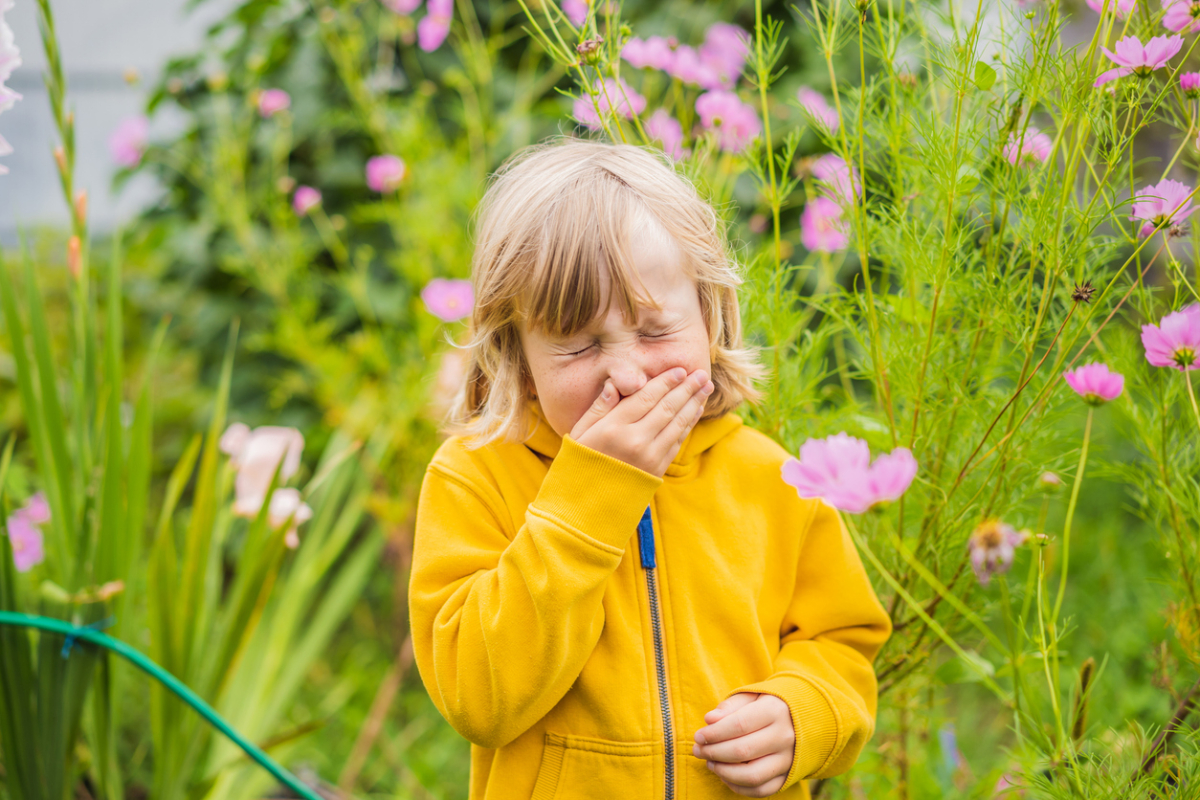Allergies are a common condition that affects millions of people worldwide, regardless of age. The ubiquity of allergies across ages leads those who experience them to consider how their allergies currently do and will continue to affect their lives. Specifically, many people ask, “Do allergies worsen with age?” Whether you are a young person trying to plan for your future with allergies or an older person wondering if your symptoms have become more frequent in recent years, you can find the answer to this question and more information about tailored allergy treatments below.
Do Allergies Worsen with Age?
Allergies occur when your body’s immune system overreacts to a harmless stimulus. This stimulus can be anything from pollen to pet dander to certain foods. Some people experience an increase in their allergies with age. But this is not the same for everyone. Several factors contribute to how your allergies change as you age.
Immune System Changes
As your body changes with age, so does your immune system. It naturally weakens, which can affect how your body reacts to allergens. Several factors impact immunity in older adults. First, older adults produce fewer allergy-related antibodies, which results in a decline in their body’s ability to regulate immune responses. As a result, many individuals may experience a more severe inflammatory reaction when exposed to allergens. Second, the skin and mucous membranes of older adults become thinner and drier. This makes it easier for allergens to penetrate their system. Lastly, histamine release can increase with aging, meaning that symptoms may worsen, including sneezing, hives, and watery eyes.
Overall Health
Many older adults develop health conditions related to aging. These conditions can exacerbate or intensify allergy symptoms. Additionally, many of these conditions require taking medication long-term to manage the condition. In some cases, taking multiple medications can increase the risk of drug allergies in older adults. Many of the symptoms of allergies and chronic conditions can look similar. This is why older adults need to work closely with an allergist to ensure they receive a proper diagnosis and treatment.
Declining Lung Function
Over time, lung function gradually declines, even for healthy adults. The natural decline in lung function can exacerbate respiratory allergies. Older adults experience more difficulties with clearing allergens from their airways. As a result, symptoms can feel significantly more intense and last longer. Common symptoms include coughing, congestion, or shortness of breath. Aging also makes it more difficult for the body to recover from inflammation. When allergies cause swelling, it can take significantly longer for the body to recover.
Gut Health in Adulthood
Many people develop food allergies in adulthood. In fact, half of the adults with food allergies developed them after the age of 18. As the body ages, several changes occur in the digestive and immune systems. These changes make food allergies a real possibility in adulthood. First, older adults produce less stomach acid. This change makes it harder to break down certain proteins in food. In turn, this can confuse the immune system and trigger an allergic reaction. Second, gut microbiomes also change in adulthood. Changes in gut microbiome play a huge role in immune health. The changes in gut microbiome and immunity can cause the body to react poorly to foods you could easily tolerate before.
Common Allergies and Symptoms
Several different types of allergies cause a variety of symptoms. Knowing when to see an allergist is important. They can diagnose your allergy and provide you with a customized treatment plan.
Environmental Allergies
Common environmental allergies include pollen, dust mites, and pet dander. Pollen is one of the leading causes of hay fever. It is known to cause sneezing, a runny or itchy nose, and red and watery eyes.
Dust mites are another common allergy. No matter how much one cleans, they are common in every household. Dust mites are microscopic organisms that thrive in household dust. They cause sneezing, coughing, and difficulty breathing.
Pet dander is a common allergy that can have a significant impact on those with domesticated animals. The allergen is a protein found in the skin, saliva, and urine of pets. It causes serious symptoms, including nasal congestion, sneezing, and skin rashes.
Food Allergies
Consuming certain foods can trigger severe allergic reactions. Common food allergens include nuts, shellfish, dairy, wheat, and eggs. Symptoms, which commonly include hives and an upset stomach, can range from mild to severe, depending on the individual’s sensitivity to the allergen. In severe cases, anaphylaxis can occur. Symptoms can include difficulty breathing, swelling, and a rapid drop in blood pressure.
Insect Allergies
Insect allergies are common and can cause mild to severe reactions. Common insects that cause allergic reactions include bees, wasps, and fire ants. Mild reactions include pain, swelling, and redness. However, more severe cases can result in anaphylaxis.
When to Contact an Allergist
Allergy symptoms can sometimes be mistaken for those of other illnesses. Sneezing and coughing caused by allergies may be mistaken for the common cold. The common cold or flu typically lasts only a few days to a week. If you experience persistent symptoms associated with allergies that last more than two weeks, it is time to consult an allergist. Treating the allergy can improve your health and overall quality of life.
During your appointment with an allergist, they will assess your symptoms to determine the cause. It is not mandatory, but it is helpful if you know the frequency and severity of the symptoms. This can help your allergist determine what type of allergy you have. The allergist will also review your medical history. Certain tests may be ordered to confirm the diagnosis. From there, a customized treatment plan is created to alleviate your symptoms and enhance your overall health.
Top Allergist in New York
If you experience allergy symptoms, contact Dr. Mayank Shukla at the Asthma & Sleep Institute today to schedule your consultation.

